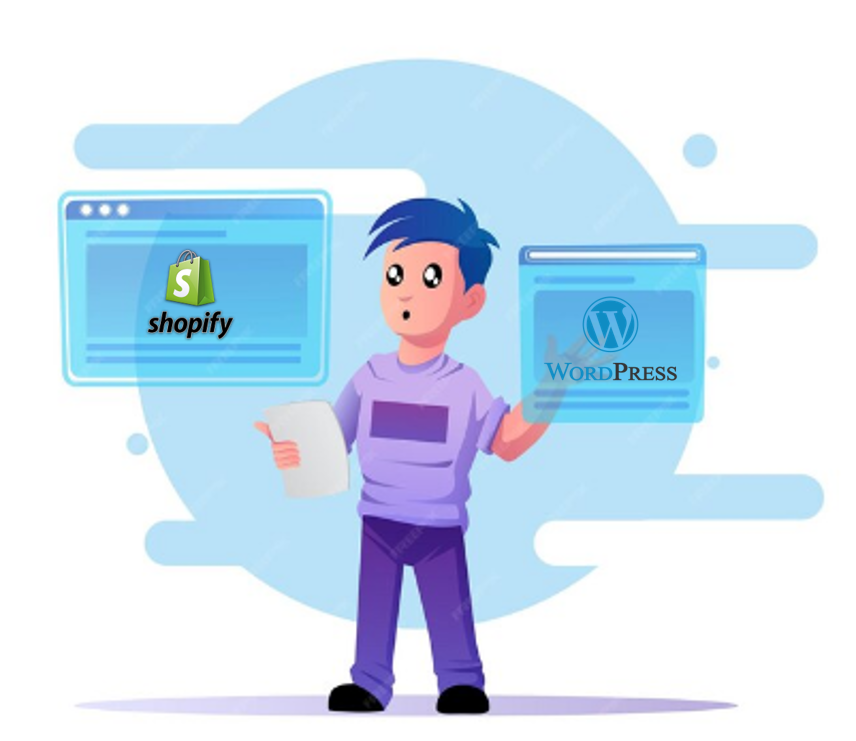Unlocking the Power of Conversion API: A Comprehensive Guide for Shopify and WordPress Users
In today’s digital landscape, data is king. And for businesses, the ability to collect, analyze, and utilize data is crucial for success. This is where conversion API comes in. Conversion API, or application programming interface, is a powerful tool that allows for seamless data integration between different platforms. In this comprehensive guide, we’ll explore the ins and outs of conversion API and how it can benefit Shopify and WordPress users.

What is Conversion API?
Conversion API, also known as Facebook Conversion API or FB Conversion API, is a powerful tool that allows businesses to send their website's conversion data directly to Facebook's servers. This data includes actions such as purchases, sign-ups, and form submissions, providing a more accurate picture of customer behavior and allowing for more precise ad targeting.
One of the main benefits of using Conversion API is that it helps overcome the limitations of browser-based tracking like cookies. By sending data directly to Facebook, businesses can ensure that conversions are accurately recorded, even when users switch devices or browsers.
Additionally, Conversion API can help improve the performance of Facebook ads by providing more accurate data on customer actions. This enables businesses to optimize their campaigns based on real-time insights and improve their ROI.
Overall, the Conversion API is a valuable tool for businesses looking to enhance their Facebook advertising efforts and gain a better understanding of their customers' behavior. Its ability to provide more accurate data and improve ad performance makes it a must-have for any business looking to maximize their online marketing campaigns.
How Does Conversion API Work?
Conversion API works by sending data from one platform to another through a secure connection. This data can include customer information, purchase history, and website activity. For example, a Shopify user can use conversion API to send data from their online store to their email marketing platform. This allows for more accurate and timely data, as well as the ability to create more targeted and personalized marketing campaigns.
One of the key benefits of using the Conversion API is its ability to track conversions across multiple devices and platforms, providing a more comprehensive view of customer interactions with your ads. This can help businesses better understand the customer journey and make more informed decisions about their advertising strategies.
Additionally, the Conversion API can help businesses improve the accuracy of their attribution models by capturing data from sources that the Facebook Pixel may miss, such as offline conversions or conversions on devices that block cookies. This can lead to a more precise measurement of campaign performance and, ultimately, a better ROI on advertising spend. By utilizing the power of the latest IOS 14 updates on data tracking and ad attribution, user can get more clear vision of their business progress.
Why is Conversion API important?
Conversion API offers several benefits for businesses, including:
- Accurate and Timely Data
By using conversion API, businesses can ensure that their data is accurate and up-to-date. This is especially important for e-commerce businesses, as it allows for real-time tracking of customer behavior and purchase history.
- Improved Data Security
Conversion API uses a secure connection to transfer data, making it less vulnerable to cyber attacks. This is crucial for businesses that handle sensitive customer information, such as credit card details.
- Enhanced Marketing Capabilities
With conversion API, businesses can integrate their data with various marketing platforms, allowing for more targeted and effective marketing campaigns. This can lead to increased conversions and sales.

How Can Shopify and WordPress Users Benefit from Conversion API?
Shopify and WordPress are two of the most popular platforms for e-commerce and website creation, respectively. Here’s how conversion API can benefit users of these platforms.
Shopify Users
Shopify users can benefit from conversion API in several ways, including:
- Improved Data Accuracy: By using the conversion API, Shopify users can ensure that their data is accurate and up-to-date, allowing for more effective tracking of customer behavior and purchase history.
- Enhanced Marketing Capabilities: With the conversion API, Shopify users can integrate their data with various marketing platforms, such as Facebook and Google Ads. This allows for more targeted and effective marketing campaigns, leading to increased conversions and sales.
- Streamlined Order Processing: Conversion API can also help streamline the order processing process for Shopify users. By integrating their data with their shipping and fulfillment platforms, businesses can automate the order fulfillment process, saving time and resources.
WordPress Users WordPress users can also benefit from conversion API in several ways, including:
- Improved Data Security: By using conversion API, WordPress users can ensure that their data is transferred securely between their website and other platforms. This is especially important for businesses that handle sensitive customer information.
- Enhanced User Experience: Conversion API can help improve the user experience for WordPress users by allowing for more personalized and targeted content. By integrating their data with their email marketing platform, businesses can send more relevant and timely content to their subscribers.
- Increased Conversions: With conversion API, WordPress users can track customer behavior and purchase history in real-time, allowing for more effective retargeting and upselling. This can lead to increased conversions and sales.
How to Integrate Conversion API with Shopify and WordPress?
The Integration of conversion API with Shopify and WordPress is a relatively straightforward process. Here’s how to do it:
Shopify Integration
- Create a Facebook Business Manager Account: To use conversion API with Shopify, you’ll need to have a Facebook Business Manager account. If you don’t have one already, you can create one for free.
- Install the Facebook Pixel: Next, you’ll need to install the Facebook pixel on your Shopify store. This will allow you to track customer behavior and purchase history.
- Set Up Conversion API: Once the Facebook pixel is installed, you can set up conversion API by going to the “Settings” tab in your Facebook Business Manager account and selecting “Data Sources”. From there, you can select “Add Data Source” and choose “Web Events”.
- Connect Shopify to Facebook: After setting up conversion API, you’ll need to connect your Shopify store to your Facebook Business Manager account. This can be done by going to the “Online Store” tab in your Shopify dashboard and selecting “Preferences”. From there, you can enter your Facebook pixel ID and click “Save”.
WordPress Integration
- Install the Facebook Pixel: Like with Shopify, you’ll need to install the Facebook pixel on your WordPress website to use conversion API. This can be done by installing the Facebook for WordPress plugin.
- Set Up Conversion API: Once the Facebook pixel is installed, you can set up conversion API by going to the “Settings” tab in your Facebook Business Manager account and selecting “Data Sources”. From there, you can select “Add Data Source” and choose “Web Events”.
- Connect WordPress to Facebook: After setting up conversion API, you’ll need to connect your WordPress website to your Facebook Business Manager account. This can be done by going to the “Settings” tab in your Facebook for WordPress plugin and entering your Facebook pixel ID.
Real-World Examples of Conversion API Integration
Many businesses have already seen success by integrating conversion API with their Shopify and WordPress platforms. Here are a few real-world examples:
- MVMT Watches: MVMT Watches, a popular watch brand, used conversion API to integrate their Shopify store with their Facebook and Instagram accounts. This allowed them to track customer behavior and purchase history in real-time, leading to a 75% increase in conversions.
- The New York Times: The New York Times used conversion API to integrate their WordPress website with their Facebook and Instagram accounts. This allowed them to track user behavior and send more targeted and personalized content to their subscribers, resulting in a 20% increase in conversions.
Conclusion
Conversion API is a powerful tool that can benefit businesses of all sizes and industries. By integrating their data with various platforms, businesses can improve data accuracy, enhance marketing capabilities, and streamline processes. For Shopify and WordPress users, the conversion API offers even more benefits, such as improved data security and increased conversions. By following the steps outlined in this guide, you can easily integrate the conversion API with your Shopify or WordPress platform and unlock its full potential for your business.
